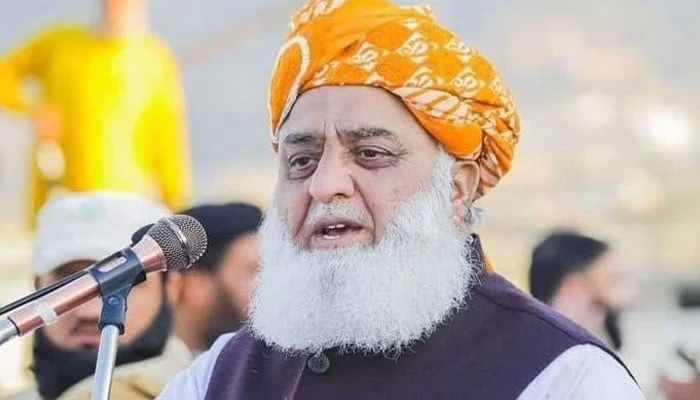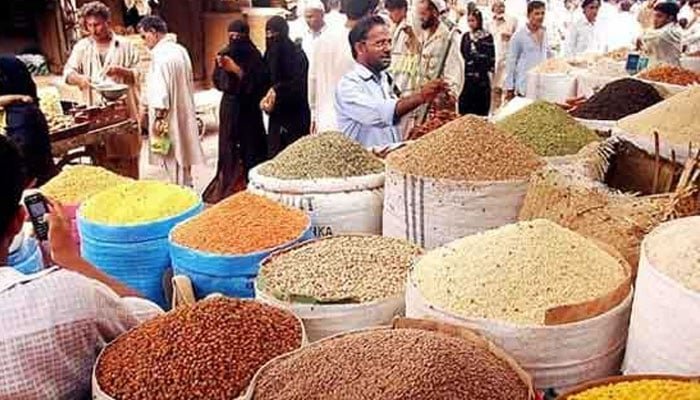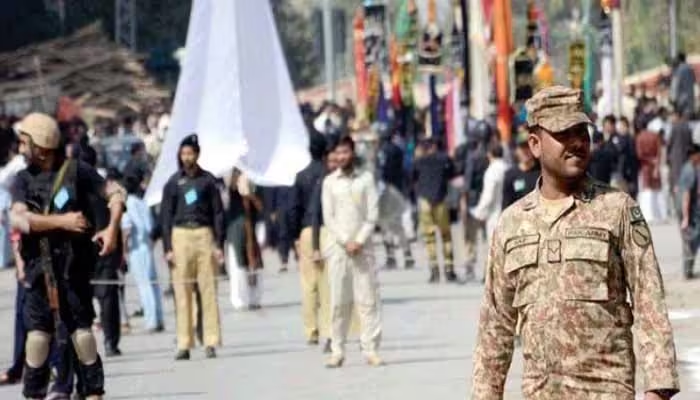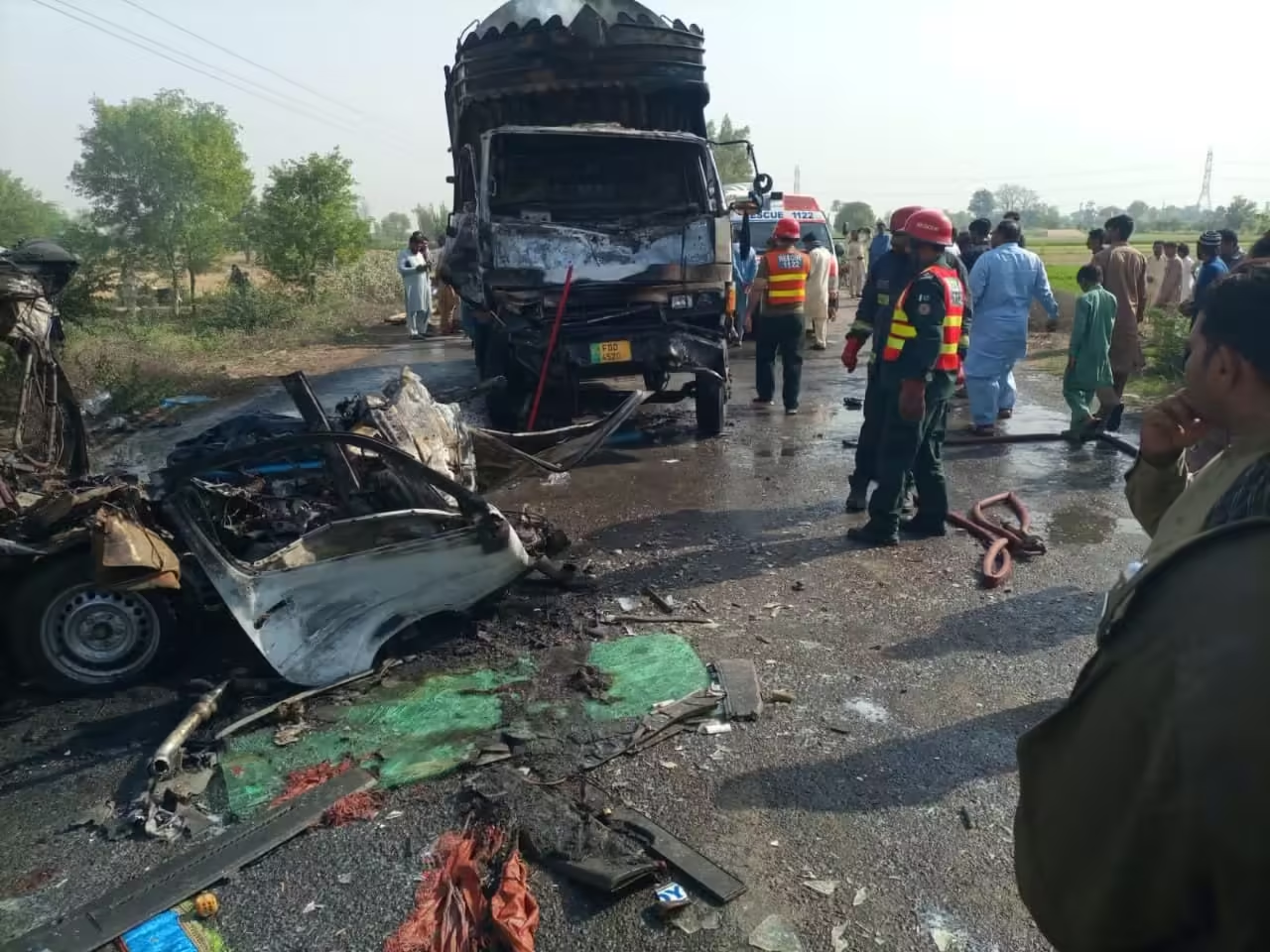Rahim Yar Khan—The political climate in Pakistan has heated up as key leaders share differing opinions on governance issues in Khyber Pakhtunkhwa (KP) and Balochistan. Maulana Fazlur Rehman, Chief of Jamiat Ulema-e-Islam (JUI-F), voiced his concerns about the imposition of Governor’s Rule in KP, calling it a move against democracy but acknowledging it might be necessary under certain circumstances.
Maulana Fazlur Rehman: Democracy First
Speaking to the media in Rahim Yar Khan, Maulana Fazlur Rehman highlighted the chaotic state of governance in both Balochistan and KP.
“There is no functional government in these provinces,” he said. “The nation is facing unresolved crises, and the only solution is to conduct free and fair re-elections, devoid of any rigging.”
While addressing the possibility of imposing Governor’s Rule in KP, he stated, “I do not support it as it goes against democratic values. However, in unavoidable circumstances, it might become a necessity.”
Awami National Party (ANP) Takes a Stand
Meanwhile, Awami National Party (ANP) President Amil Wali, speaking alongside KP Governor Faisal Karim in Charsadda, openly supported banning the Pakistan Tehreek-e-Insaf (PTI).
“PTI has demonstrated an undemocratic attitude,” he said, citing the events of May 9 and November 24 as sufficient grounds for a ban.
However, Wali strongly opposed Governor’s Rule as a solution, suggesting that it would only serve to fuel egos and stubbornness rather than resolve pressing governance issues.
Sindh CM Murad Ali Shah: Upholding Democratic Principles
In contrast, Sindh Chief Minister Murad Ali Shah expressed his commitment to democratic principles, rejecting the idea of banning any political party, including PTI.
Addressing an event in Karachi, Shah said, “The People’s Party stands firm in its belief that every political entity has a right to exist. Banning a party is not the way forward.”
His stance underscores the People’s Party’s emphasis on fostering democratic coexistence, even amidst political turbulence.
Political Tensions and Public Concerns
The debate over imposing Governor’s Rule and banning political parties has sparked widespread discussions among the public and political analysts. Many fear that such measures could deepen political polarization and erode democratic structures in the country.
Critics argue that while governance issues in KP and Balochistan are undeniable, the imposition of Governor’s Rule might not address the root causes of these problems. Instead, they advocate for institutional reforms, accountability, and enhanced governance practices to restore stability.
The Case Against Governor’s Rule
Governor’s Rule, while constitutionally permissible under specific circumstances, is often viewed as a last resort due to its implications for democratic governance.
- Erosion of Public Trust: Imposing Governor’s Rule may signal a failure of elected representatives, undermining public confidence in democratic processes.
- Temporary Solutions: Critics argue that such measures address symptoms rather than the systemic issues plaguing governance in the affected regions.
- Potential Backlash: Political parties and civil society organizations may view Governor’s Rule as an authoritarian step, leading to protests and further instability.
The Call for Re-Elections
Re-elections have emerged as a popular demand among opposition leaders, including Maulana Fazlur Rehman, as a means to restore political stability. Free and fair elections, they argue, would enable the public to elect competent representatives who can effectively address governance challenges.
“Rigging-free elections are the need of the hour,” Rehman emphasized, reflecting a sentiment echoed by other political figures and the general public.
The ongoing debate over governance in KP and Balochistan highlights the complexities of navigating political and administrative challenges in Pakistan. While some leaders advocate for drastic measures like banning political parties or imposing Governor’s Rule, others stress the importance of preserving democratic principles.
As Pakistan grapples with these pressing issues, the nation’s leaders must prioritize dialogue, accountability, and reforms to chart a path toward sustainable governance. Balancing the need for immediate solutions with a commitment to democratic ideals will be crucial in shaping the country’s future.



